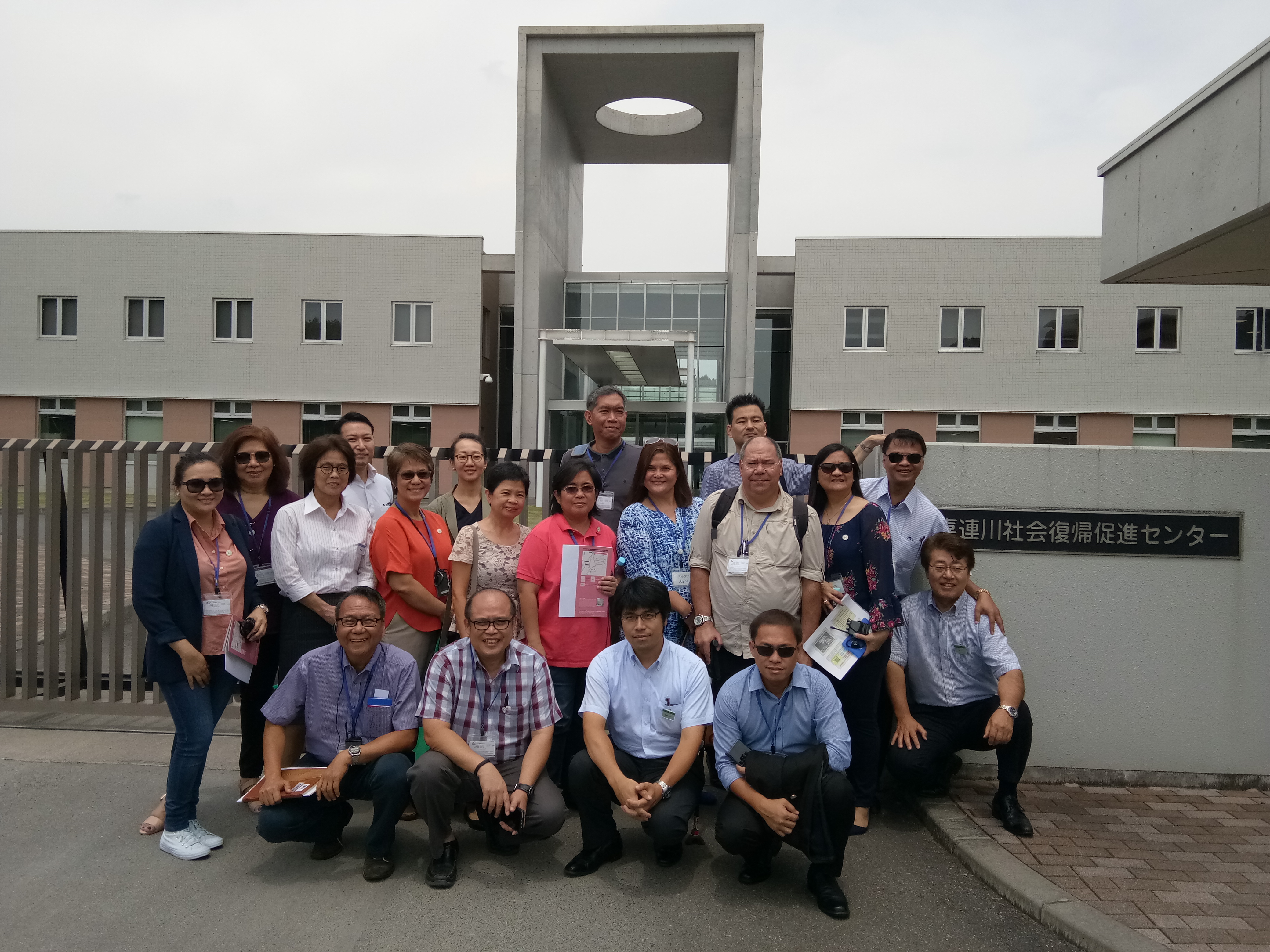Recounting the successes of JICA-DOH’s 7-year drug dependence treatment collaboration
2024.09.02
The Japan International Cooperation Agency (JICA) and the Department of Health (DOH) successfully completed the "Project for Introducing Evidence-Based Relapse Prevention Programs to Drug Dependence Treatment and Rehabilitation Centers in the Philippines" (IntERlaPP), a landmark initiative that aims to revolutionize drug dependence treatment provided by DOH Drug Abuse Treatment and Rehabilitation Centers (DATRCs) across the country.
Launched in 2017 in support of the Philippine government’s goal to deliver effective drug dependence treatment and rehabilitation services and promote social reintegration of people who use drugs (PWUD), IntERlaPP seeks to address the capacity gaps of DATRCs, which surfaced following the surrender of over one million PWUDs at the time. The project also targets to enhance the efficacy of these facilities through treatment model development, research, and supervision system strengthening among others, in tandem with JICA’s grant assistance for a development of a 480-bed capacity DATRC in Trece Martires City.
Facilitator using modules developed by the project in a session at a DATRC in Tagaytay.
Under IntERlaPP, JICA and DOH developed two new innovative and evidence-based treatment models – the Intensive Treatment and Rehabilitation Program for Residential Treatment and Rehabilitation Centers (INTREPRET) and the Enhanced Treatment Program Outpatient Services (ENTREPOSE). These programs effectively integrate cognitive behavioral therapy, social support, psycho-education, and self-help groups. While patterned after the US-based Matrix Model, both INTREPRET and ENTREPOSE incorporated Filipino cultural perspectives to better care for local patients. A counterpart training program in Japan in 2018 and collaborations with Tsukuba University further enriched the project, incorporating insights from Japan’s Matrix Model implementation.
Health professionals underwent extensive training to more effectively understand and manage the patients’ thoughts, feelings, and behaviors related to drug use. A total of 763 practitioners from 27 DATRCs attended the capacity-development sessions. To expand nationwide dissemination of the two new treatment models, JICA and DOH successfully developed INTREPRET and ENTREPOSE training modules and supporting materials (in English and Filipino), which are now available on the DOH Academy E-Learning platform. This initiative marks the first attempt to implement an organized and standardized session and schedule, making it easier for DATRCs to apply the modules effectively.
Initial findings based on the qualitative and quantitative research studies conducted show that the implementation of INTREPRET resulted in notable improvements in personal dynamics, TRC management, and adherence to the standards set by the United Nations Office on Drugs and Crime (UNODC). Patients who participated in the pilot INTREPRET sessions showed better well-being, reduced relapse risk, and enhanced coping strategies. They also expressed higher satisfaction with their treatment and a greater likelihood of recommending the facilities to others.
The improvements brought about by IntERlaPP will largely benefit current and future patients in TRCs in the Philippines. They can rest assured that they will receive topnotch treatment from capable health professionals who are committed to helping them get through their drug treatment and rehabilitation journey.
The success of IntERlaPP, however, is celebrated not only in the Philippines, but also in other parts of the globe. The Sri Lankan government, for instance, has expressed a desire to adopt and learn more about these treatment models. The project has also yielded five research articles, three of which have already been published, and its findings have been well documented and showcased in international conferences, underscoring the global significance of IntERlaPP.

Counterpart training program for Filipino experts on Drug Dependence Treatment and Rehabilitation in Japan in 2018.
While there may be challenges in the wider rollout of IntERlaPP, JICA remains steadfast in its continued cooperation with the Philippine government to protect the people, and ultimately improve the lives of individuals affected by drug addiction.
During the project’s closing activity, JICA Philippines Chief Representative SAKAMOTO Takema emphasized that human security is a fundamental principle of JICA’s development framework. “We protect everyone from threats to their lives, livelihoods, and fundamental rights. This commitment is in harmony with the Filipino concept of ‘Bayanihan’, epitomizing communal unity, collaboration, and collective efforts toward the shared goal – that is, a sustainable, resilient, and inclusive society. I am filled with immense pride in witnessing the culmination of our collective efforts in this seven-year journey,” he said.
Meanwhile, DOH Secretary Teodoro Herbosa thanked the project’s support to agenda 6 of DOH’s 8-Point Action Agenda of “Ginhawa ng Isip at Damdamin” (Mental Health and Overall Well-Being for Filipinos) and promised to leverage the gains of IntERlaPP to help more Filipinos. “As the DOH is committed to make our services closer to our people, the department aligns our initiatives with the global direction to transform mental health care and support so that enabling practices are part of everyday life.”
scroll